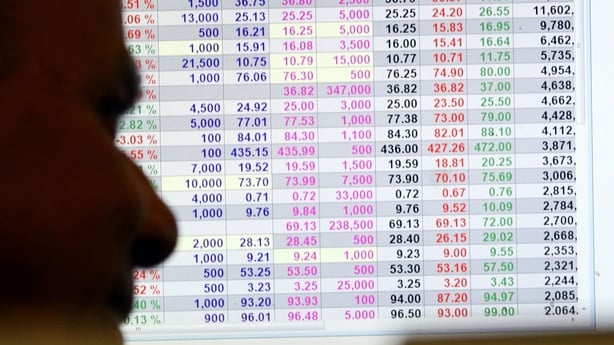A sudden tightening of social restrictions to tackle the resurgent coronavirus pandemic across Europe threatens to spoil any stock market boost third quarter earnings might bring.
European powerhouses Germany, France and the UK have announced a fresh range of measures, including curfews and limits on private gatherings.
These moves have fuelled worries about the sustainability of the recovery.
Optimism about the burst of activity which followed the lifting of national lockdowns during the summer, had raised hopes the upcoming European earnings season would help the region's stock markets break out from the sideways movement they've been stuck in for months.
European stocks are still down 11% in 2020 after Covid-19 sent the pan-European STOXX 600 index spiralling down about 40% in March.
"In the grand scheme of things, this quarter is one of overall recovery," said Sylvain Goyon head of equity strategy at Oddo BHF in Paris.
"There's been an improvement in expectations and there's a good chance economic forecasts will continue to be revised upwards," Goyon said.
According to Refinitiv I/B/E/S/ data, analysts expect companies on the STOXX 600 to report an average 36.7% drop in third quarter earnings year-on-year.
"That's better than what we had last quarter but it's still fairly brutal," said Philipp Lisibach, Head of Global Equity Strategy at Credit Suisse in Zurich, highlighting the 51% drop in profits in the second quarter.
While corporate profits in the third quarter of 2020 are expected to show evidence of a recovery, investors will be keen to see forecasts for the next quarter and 2021, if any are forthcoming.
They will be closely watching outlook statements to see how businesses fared in the weeks following the reporting period and what the impact of a potential failure of the European Union and the UK to strike a free trade agreement might be.
Investors will also be analysing how companies are controlling costs and dealing with headwinds such as a stronger euro.

Despite the bouts of volatility, early results from companies such as Publicis, the world's third biggest advertising firm, or German chemicals maker Covestro appeared to bring evidence of the better trend.
Recovering sales of Louis Vuitton handbags helped France's LVMH contain the fallout from the coronavirus crisis in the third quarter, as the world's biggest luxury goods group reported a smaller-than-expected drop in revenues.
Also encouraging were the results of Daimler, which published forecast-beating third-quarter results, buoyed by a better-than-expected rebound in sales of luxury cars in September
Stay-at-home winners Logitech and Reckitt Benckiser will report results tomorrow. Luxury goods makers Kering, Moncler and L'Oreal report later in the week.
Due to a relatively larger exposure to cyclical sectors, profit trends and price performances for European equities are tied to economic swings more than other markets such as the US which is laden with tech giants such as Apple and Amazon.
Energy and financial stocks for instance, which tend to track economic growth closely, are expected to see their profits drop by 81.6% and 38.6% respectively this quarter.
While this imbalance has weighed on Europe in comparison with the US market which has seen the S&P 500 gain 7% year-to-date, it could turn into a tailwind once a credible vaccine is deployed or large US stimulus gets approved, kick-starting the economy.
Earnings in Europe are seen lagging the US, where the third quarter profit drop is expected to be limited to 18.9% thanks to its heavy gearing to big tech, which got a boost from the stay-at-home economy during the pandemic.

